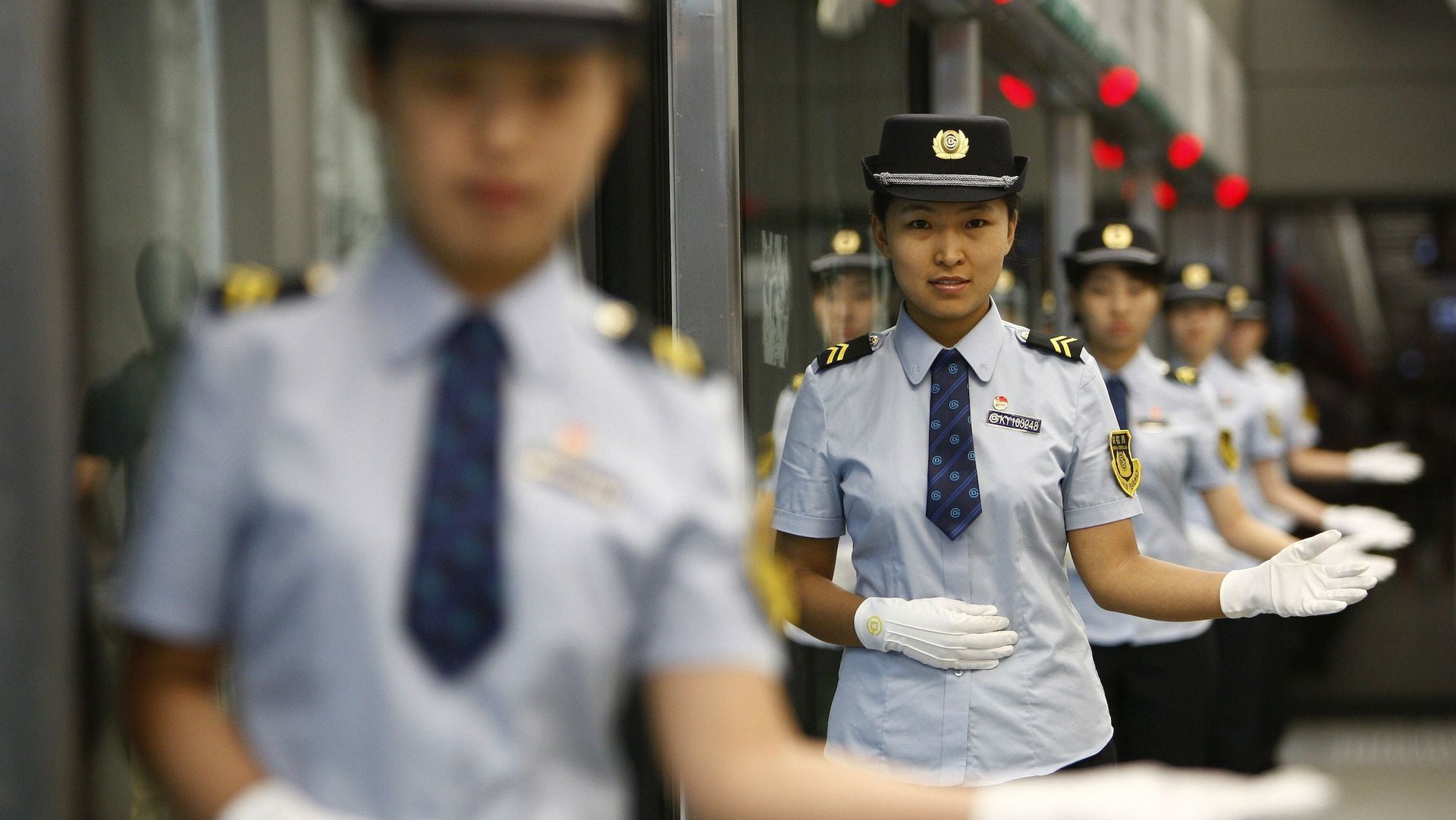Memo to Beijing: Female-only subway cars don’t make women safer from sexual harassment
Two high-ranking political advisors are calling on Beijing to start offering women-only subway cars during rush hour as a way to protect women from sexual harassment. Beijing city transport authorities said that so far there is no “specific plan” to adopt the proposal, according to the state-run news agency Xinhua, but the suggestions made to a Communist Party political committee could soon change that stance.


Two high-ranking political advisors are calling on Beijing to start offering women-only subway cars during rush hour as a way to protect women from sexual harassment. Beijing city transport authorities said that so far there is no “specific plan” to adopt the proposal, according to the state-run news agency Xinhua, but the suggestions made to a Communist Party political committee could soon change that stance.
China’s capital is one of several cities around the world to consider women-only public transportation, but they should know that it’s no cure: more than 100 years after the world’s first gender-segregated transit option was introduced, women are still being harassed and groped more than ever—often in the same cities that have introduced such policies.
The biggest flaw in women-only transit options are that they “put the onus on women to keep themselves safe,” as feminist writer Jessica Valenti wrote earlier this month. As Quartz has reported, the general compartment in the Delhi metro has started to become known as the “men’s compartment,” where women are targeted and harassed for not taking the designated female cars. This is a particular problem when up to 25% of the metro’s daily commuters are female but only one of every eight carriages are designated as safe cars for women.
In Beijing, women-only cars would be difficult to enforce in its increasingly overcrowded and chaotic metro system. The number of annual passengers jumped six-fold to 3.2 billion in the decade to 2013, making it one of the world’s busiest subways.
The idea of women-only transit option, no matter how ill-advised it might be, is still is a welcome departure from Beijing’s previous approach: advising women to ”not wear minimal clothing, such as miniskirts, hot pants or skimpy clothing when taking public transportation.” But for the cities that have had women’s only transportation options for years, there’s little to suggest it has helped. A survey by Thomson Reuters and YouGov said last year ranked Mexico City, which has had women-only buses since 2008, Tokyo, where such trains were reintroduced in 2000, and Delhi, which introduced female-only carriages in 2010, as among the five worst cities for harassment.
A better measure might be raising the penalty for sexually harassing women. China only enacted its first law prohibiting sexual harassment in 2005. It took three more years for anyone to be prosecuted: a manager who held a female employee by her neck while he kissed her received five months in jail.
A change in attitudes toward sexual harassment might help even more. In July, a video capturing a man groping a woman in a subway car in Chengdu was circulated widely. In an interview with Chinese media, the woman who took the video blamed the assaulted female passenger for not speaking up.